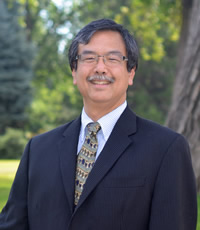A recent blizzard caused the cancellation of our daughter’s flight back to college. During our bonus family time we sat by the fireplace, working on our own projects. She did research for her theater paper and I took a journey through another liminal dimension.
I saw on one side of that liminal space the grudging lip service that we often give to ethics in our professions. “Of course I’m ethical,” we might scoff. “You should worry about the other guy!”
A few minutes with John Bogle, founder of the Vanguard Group mutual fund company, took me from the idea of optional ethics through the liminal dimension to ethics as the carbon fiber in the Kevlar vest of life. Two stories brought that home to me. I’ll share the first story today and the second one next week.
I assumed that Vanguard’s mission, like that of all mutual fund companies, is to maximize shareholder returns. On the surface, an investible dollar is a dollar is a dollar. Why would a mutual fund company refuse to take an investment? Bogle would say that the Golden Rule, not gold itself, should direct our decision-making.
Consider my surprise as this story took me through the doorway to a new understanding of the power of living by a solid ethical rudder.
Several years ago, Vanguard received a call from a chemical research foundation. The young rep fielding the call was offered a $30M investment into a bond fund. When he inquired how long the investor intended to park the funds, he was told 6 months or so. The rep said, “I’ll have to check on that first, sir, to see if we can accept your investment.”
The investor said, “So are you saying you don’t want my money?”
“No, sir, I just need to check on something first.” After checking with a manager, the rep got back on the phone. “I’m sorry, sir, but we are unable to accept your order because it would incur a huge cost on other shareholders.”
Outraged, the investor went to the WSJ and reported the incident. The headlines “Vanguard Refuses $30M Investment” elicited a call from Chairman Bogle to WSJ Editor Paul Stiger: “It’s not fair that we should get so much press for doing what’s right.” Rather than viewing the situation as a loss, he viewed it as vindication of his application of the Golden Rule to dealing with customers.
The result of these ethical moorings? As of December 2012, Vanguard stewarded over $2.2T of investors’ money. (Full disclosure: I hold Vanguard funds).
On this snowy day, Bogle refreshed my view of ethics. His passion for a faith-grounded stewardship—has become the business driver in the Vanguard Group. For example:
- Leadership: Bogle’s relentless pursuit of maximizing investor/fundholder returns through reduced cost is embedded in both the mindset and the practices of front line employees. Even in his retirement, Bogle still makes himself available to meet with individual employees to pass along these ethical values.
- Corporate Structure: Bogle had to fight with the SEC to create an indexed mutual fund in 1975. What makes Vanguard unique among mutual fund companies is that, like a credit union, it is owned by the shareholders. Therefore, the management of the company really serves just one master—the shareholder/investor—rather than two—the shareholder AND the investor (cf. Matthew 6:24). This structure—perhaps less lucrative for the managers of the firm than other structures—makes possible a better alignment between investors and “stock holders.” Since indexed funds are designed to track the benchmark—be “average”—Vanguard unique structure adds more value through cost-reduction as compared to a more active investment approach.
Next week, I continue my explorations of the liminal dimensions of ethics.
Toolkit:
- In addition to the SEC and FINRA compliance requirements, what personal safeguards have you found keep you alert to your fiduciary responsibility on a daily basis?
- Bogle found ways to create a company that followed the Golden Rule by seeking all his clients’ benefits first. What can you do to create a firm or department that lives and breathes ethical practices?



